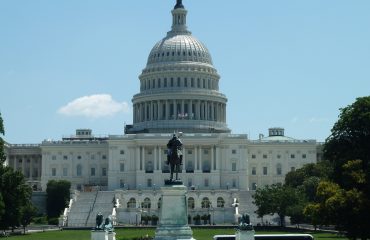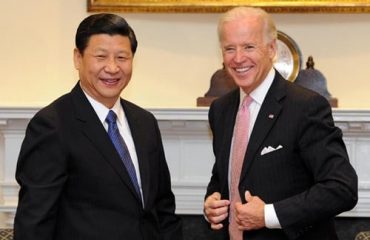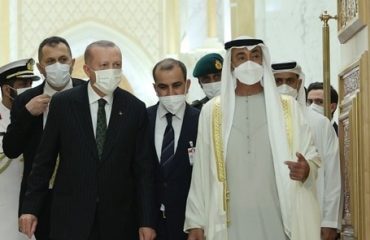

I cannot explain the recent detention of the Peoples’ Democratic Party (HDP) members and representatives in terms of law, so let’s try to look into it in terms of political balances and meaning. Why now, and or God’s sake, what’s going on?
First, the political atmosphere in which such a decision was made matters. The Greece/Eastern Mediterranean conflict, which recently helped the ruling Justice and Development Party (AKP) and Nationalist Movement Party (MHP) bloc to keep the excitement of their nationalist-conservative voters high, is now on the table. So is the Libyan conflict. Let’s say it bluntly, so is Syria. Looking at these developments, I can tell that the possibility of a conflict decreases, issues of national interest will no longer occupy the soldiers, but diplomats and politicians, and I am pleased with it. However, from the perspective of the government, these might be seen as a loss of an opportunity to keep their voter base consolidated with military action and discourse. At a time when the influence of foreign enemies weakened on the diplomatic table, we witness the reopening of Kobani file after 6 years later and the detention of the HDP members and representatives again.
Populist rhetoric on foreign affairs is expiring
The domestic developments have exceeded a level that can be covered with a tough discourse against Greece, France, the U.S., or Russia.
Turkey’s struggle against the Covid-19 outbreak did not start bad. But the virus made a comeback after the ease of measures in June. Health Minister Fahrettin Koca said on Sept. 25, the same day with the HDP detentions, that the number of patients treated in hospitals had increased at an “alarming” rate. This problem addresses President Tayyip Erdoğan for its nature. I wonder if the Nationalist Movement Party (MHP) will add the minister on a list of trouble makers and Marxists for showing the dire picture?
A second issue is the Central Bank’s interest rate hike decision on Sept. 24. After having appointed his son-in-law Berat Albayrak as the Treasury and Finance Minister in 2018, President Erdoğan had the Central Bank cut interest rates whenever he wants. The state’s resources were used to keep the value of the dollar below 7 liras, and the banks were put under pressure. Foreign currency resources were paid to the contractors, one of the pillars of the AKP government. But in the end, came the interest rate hike again. Then the banking regulator BDDK reversed its previous SWAP decision. Some even celebrate the victory of pulling the dollar down to 7.60 liras from 7.70.
Can HDP be shut down?
We cannot talk about the issues above, so we are busy with questioning the HDP detentions.
When I saw the photo showing former HDP deputy Sırrı Süreyya Önder being taken into custody again, I said, “He is paying the price.” This is the price of helping as a deputy the informal and indirect dialogue between the state and the jailed leader of the outlawed PKK, Abdullah Öcalan, and the PKK’s Qandil base between 2012 and 2015. It is the photograph of our state’s history of not leaving any service unpunished, unfortunately. Önder was involved not only in the process known as the İmralı dialogue but also in ending the violence between Oct. 6 an 8, 2014 by taking Öcalan’s letter to Qandil. The whole process was under the control of President Erdoğan, then-Prime Minister Ahmet Davutoğlu and National Security Organization (MİT) Undersecretary Hakan Fidan. Now, like the former HDP co-chair Selahattin Demirtaş, who said “The state thanked me for ending the Kobani incidents,” Sırrı Süreyya Önder is once again in prison.
It comes to mind whether the HDP will be shut down next. Does Erdoğan, who struggled against party closures during his entire political life, now want to overcome the HDP obstacle by closing it with the encouragement of the MHP leader? Do you think this cannot happen?
Remembering Kobani incidents
HDP co-chair Mithat Sancar points out that the Ankara Chief Public Prosecutor’s decision on Sept. 25 came after the National Security Council (MGK) meeting on Sept. 24. He argues that the decision is entirely political and linked to the vote meltdown of the AKP and MHP. And also to Ankara Chief Public Prosecutor Yüksel Kocaman’s wedding ceremony on Sept.19 with marriage witnesses from the government, the judiciary, and the military, and his visit to the Presidential palace to take the blessing of Erdoğan.
Presidential Spokesperson İbrahim Kalın says that the process is completely judicial and the Kobani incidents will not be easily forgotten. Let’s remember briefly. When ISIL attacked the town of Kobani (Ayn al-Arab) controlled by the PYD, the Syrian branch of the PKK, the HDP was encouraged by the continuing dialogue at that time and called on the government to help. On the other hand, Erdoğan said, “Kobani is about fall.” Thereupon, HDP launched support marches. The protests turned into clashes between the PKK members and the security forces, HüdaPar (formerly Hezbollah) and MHP supporters in the southeastern provinces, especially Diyarbakır, on October 6, and 46 people were killed and 682 were injured until the clashes were stopped. End of dialogue, chaos in Syria
Kobani incidents were taken to the judiciary. Finally, in the case of teenager Yasin Börü, who was brutally murdered during the events, the Ankara 2nd Criminal Court ruled on April 24, 2017 for the five life terms for 16 people, with the Court of Appeal holding the ruling on Nov. 20, 2018.
The Kobani debate ended with then-U.S. President Barack Obama’s phone call to Erdoğan on 19 October, who said the U.S. would send the resistance in Kobani aid from the air and wanted Turkey not to prevent it.
At the end of this process, Obama decided to continue the struggle against ISIL with PYD and its armed branch YPG, not Turkey.
This had a negative impact on Turkey’s Syria policy, and led to the growth of the PKK with an open U.S. support. A strengthened PKK claimed new conditions in the dialogue with Turkey and the dialogue process had already started to lose ground before a Feb. 28 consensus, known as the Dolmabahçe commitment.
From a political perspective, the HDP, the third-largest party group in parliament, has submitted motions to investigate the Oct. 6-8 incidents three times so far. All three were rejected by the AKP and MHP votes.
Passivising CHP and IYI Party by moves on HDP
This whole picture justifies the questions “Why again after 6 years?” and “What’s going on?” it justifies the question.
The reopening of the file has caught the alliance of the main opposition Republican People’s Party (CHP) and IYI Party (Good Party) at the wrong foot. The government’s moves on the HDP are the AK Party-MHP alliance’s most powerful weapon to widen the gap between the CHP and IYI. IYI leader Meral Akşener is busy with addressing internal problems following party heavy gun Koray Aydın’s recent congress moves. Under the given conditions, it would not be surprising for her to support an initiative that even might work against her party in the future. She might, for example, fall into a trap similar to the one that CHP leader Kemal Kılıçdaorğlu fell and supported lifting the immunity of lawmakers.
Kılıçdaroğlu himself did not openly react to the recent detentions but called HDP co-chair Sancar instead, just to avoid black propaganda that would claim “he is shoulder to shoulder with the PKK.”
Erdoğan and Bahçeli are suppressing and pacifizing the non-HDP opposition through the HDP.
For this reason, the question of whether a closure case will be filed against HDP is legitimate.
HDP may overcome this problem through its substitute parties, but this whole process also strengthens the demand of “withdraw from parliament” from Qandil. It’s a dangerous game.


